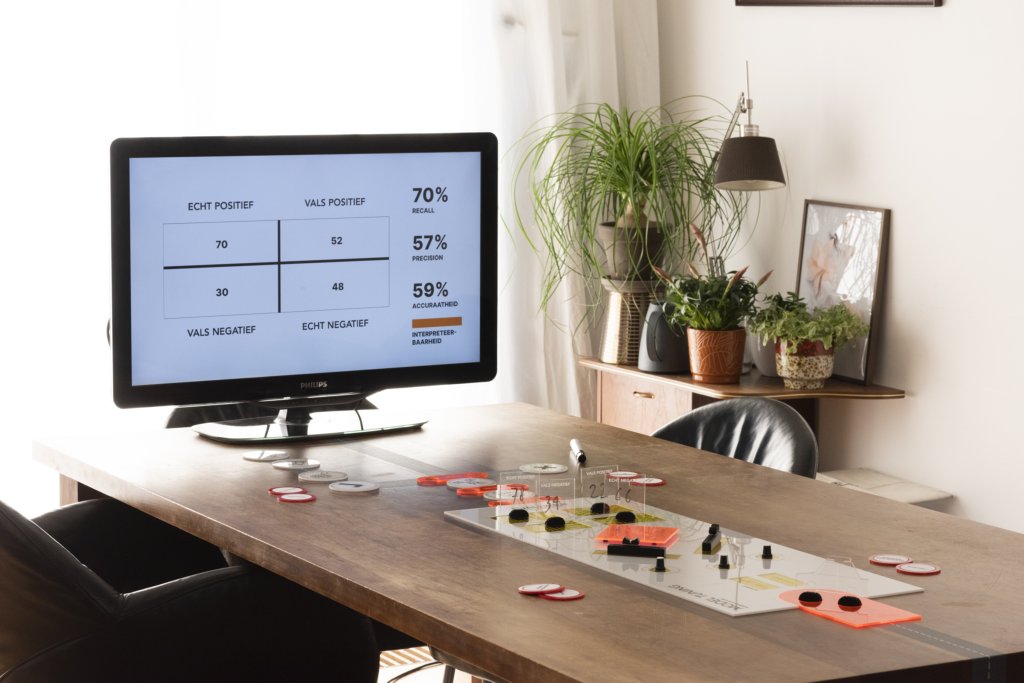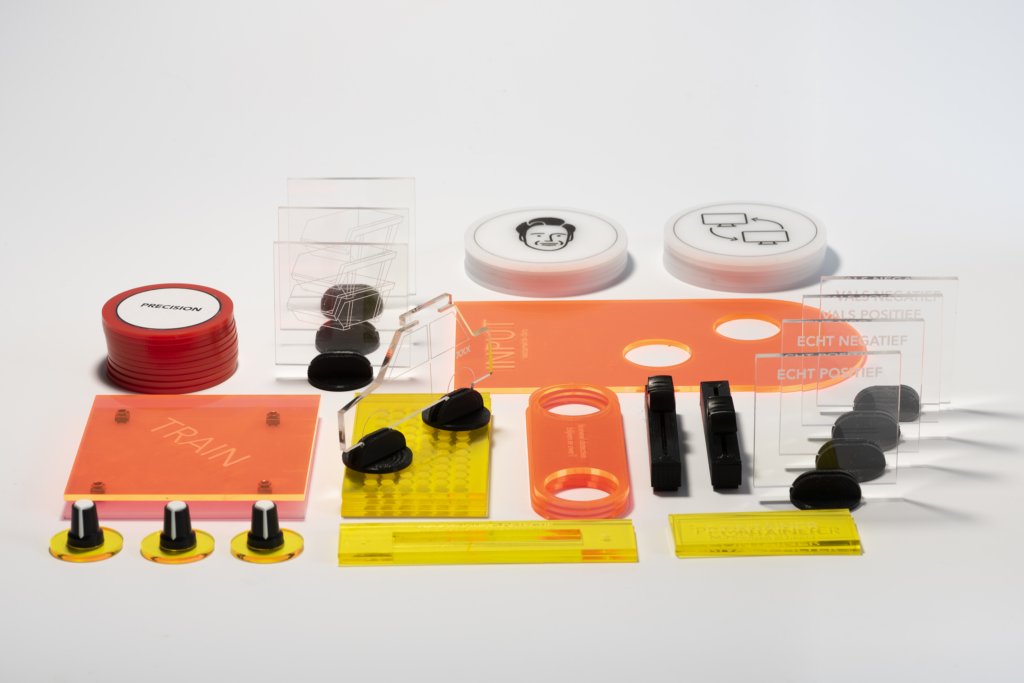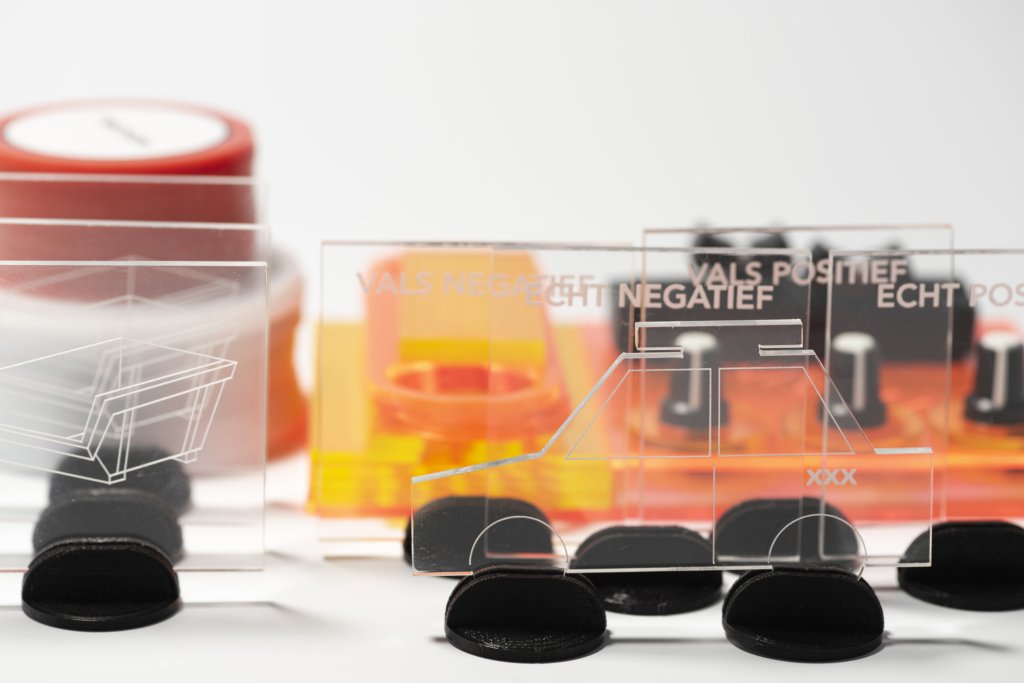Laura de Groot
This project opens up the discussion about the acceptability of a machine vision system during the development phase, using the scan car development process in Amsterdam as a use case. Acceptability is explored based on various trade-offs made during this development phase (e.g., Accuracy versus Interpretability). By providing a tangible approach to explaining and interacting with the system, the design improves the understanding of non-experts citizens about machine vision systems and nurtures a deliberative debate.
The final prototype, a tangible user interface to explore the machine vision model in its system, was evaluated with pre- and post-game knowledge tests and post-game focus groups. The results indicate improvement in participants' subjective understanding, enabling them to form opinions about what is acceptable and creating a shared language. Ultimately, this design contributes to participatory approaches to the responsible design of artificial intelligence (AI) by providing a practical example of how to involve non-expert citizens in the development phase.
In this way, they can be part of the conversation and thus align the technology with public opinion before it is deployed. Their involvement informs and steers the development process of a machine vision model to increase acceptance and legitimize choices made.






